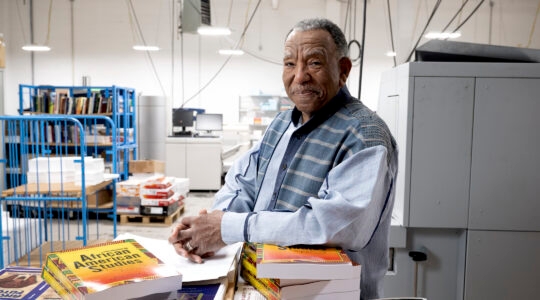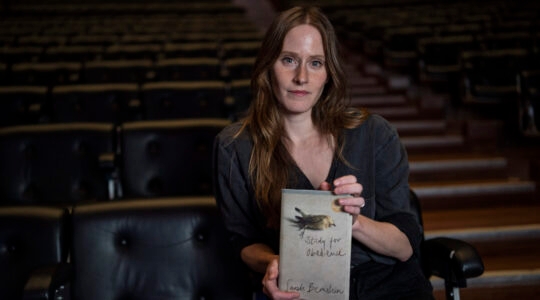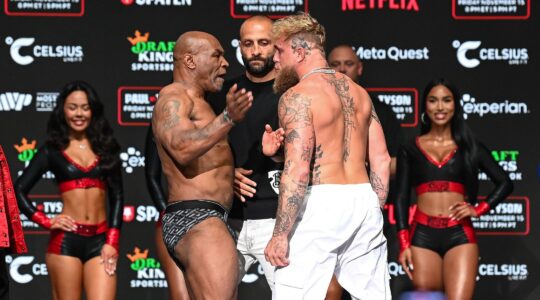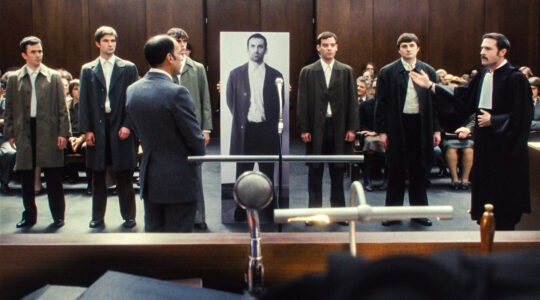One of the silliest controversies I’ve ever accounted in my Jewish journalism career: Whether having a goy (Alfred Molina) play Tevye was a shanda — and whether said production of "Fiddler on The Roof" had somehow been de-Judaisized. I say silly (sorry Thane) … because about 30 seconds into the show the cast was dancing around with tzitzit and Torahs, and because the only problem with Molina’s performance and director David Leveaux’s production was that they did not satisfy some critics’ nostalgia fix:
The problem, however, is not Molina’s Spanish-Italian roots or Leveaux’s refreshing creative choices, but the critics themselves, or more precisely, their misguided definitions of Jewish authenticity and lack of imagination when it comes to “Fiddler.”
“I don’t remember any fuss when Antonio Banderas, a Spaniard, played Guido, an Italian, in ‘Nine,’” wrote Heilpern in the March 4 New York Observer. “Actors act, and Mr. Molina is a very fine actor. He isn’t Zero Mostel or Topol; nor is he trying to be. But where is it written that only a Jew can play a Jew? If that were the case, Laurence Olivier, the son of a priest, wouldn’t have given us his memorable Shylock, and Nathan Lane, a Catholic, wouldn’t have been able to play Max Bialystock.”
Critics are also standing on shaky ground when they take aim at Leveaux’s set — as if the original production supplied an accurate portrait of shtetl life. As several critics of the critics have pointed out, the decades-long romance between American Jews and “Fiddler” has always been fueled by nostalgia not for an actual place but a mythical past, the virtual memory of which brought comfort to a people cut off from their roots by immigration, the Holocaust and assimilation.
Leveaux’s real crime, then, is robbing an aging Jewish crowd of the comfort that its derives from a “Fiddler” performed just like Mostel would have done it four decades ago, replete with Yiddishy shmaltz. The only problem is that such a performance would work for younger audiences about as well as Henny Youngman taking Jerry’s place in an episode of “Seinfeld.”
As Heilpern put it in his review for the New York Observer: “If you’re going to revive Fiddler for what seems like the hundredth time, you either stage it as a museum piece to pander to the traditionalists, or you upset the milk cart by trying to breathe new life into it, as Mr. Leveaux has boldly done here.”
A key change — and probably the most difficult for critics to accept — is that Molina plays a more subdued Tevye than his predecessors. But that hardly makes the show less Jewish, unless you define Jewishness as scene-stealing Mostellian shtick.
OK, OK. I’ll get to the point. Thursday night I rewound the opening moments of "Modern Family" several times to enjoy this priceless line from Manny, a delightful and rotund Colombian kid, who is depressed over the results of the audition for the school play. Take it away Manny:
That part was mine. I was born to play Tevye. Instead they give it to Rod Jackson? What does he know from suffering?

Help ensure Jewish news remains accessible to all. Your donation to the Jewish Telegraphic Agency powers the trusted journalism that has connected Jewish communities worldwide for more than 100 years. With your help, JTA can continue to deliver vital news and insights. Donate today.





